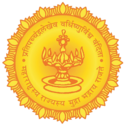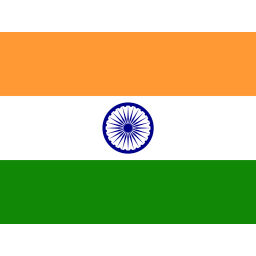Address by Governor at 104th Indian Science Congress at Tirupati
Address by Shri Ch Vidyasagar Rao, Governor of Maharashtra at the Valedictory Session of the 104th Indian Science Congress at Tirupati, Andhra Pradesh at 1715 hrs on Saturday, 7th January 2017
Shri Y S Chowdary, Hon’ble Minister of State for Science & Technology and Earth Sciences, Government of India, Sri Ganta Srinivasa Rao, Hon’ble Minister for Human Resource Development, Andhra Pradesh, Prof D Narayana Rao, General President of the Indian Science Congress, Prof A Damodaram, Vice Chancellor of Sri Venkateswara University, Prof. S. Vijaya Bhaskara Rao, Organizing Secretary, Science leaders, Science – lovers, delegates, ladies and gentlemen,
I am indeed honored to associate myself with the Concluding Session of the 104th Indian Science Congress in the beautiful settings and holy surroundings of the Sri Venkateswara University.
Before coming for the Concluding Session, I was going through the website of the 104th Indian Science Congress.
I was pleased to read a notice on the Home Page of the Indian Science Congress website. It said: Due to overwhelming response, the Organizing Committee has decided not to grant Spot Registrations for attending the Science Congress !! Thank God, I am a Guest ! Otherwise, as delegate, I had no chance to attend the Science Congress !!
I applaud and appreciate the Indian Science Congress Association for its efforts in hosting the Indian Science Congress regularly. The Annual Congress offers an excellent opportunity to discuss, reflect upon and deliberate on the progress made by the country in various streams of science and what needs to be done to further promote science.
It is with immense pride that I acknowledge the presence of great science leaders, researchers, teachers, science lovers and students attending this Meet.
I understand that apart from having regular events, the Science Congress has had a busy schedule comprising Subject-wise Technical Sessions and Scientific Sessions, Guest Talks, Symposia, Paper Presentations, Oral Presentations and so on.
Ladies and gentlemen,
The 104th Session of the Indian Science Congress is taking place at an appropriate juncture.
India is poised to break into the league of fastest developing countries and one of the fastest developing economies powered by the spirit of science, technology and innovation.
India’s Science and technological institutions are making their mark at the global level. India’s success in the realm of Information Technology, Communications, Space Science, Nuclear Science and many other areas has caught the attention of the world.
The success of Mangalyaan brought a sense of pride to the entire nation. A few months ago, students from the College of Engineering, Pune launched a Satellite project ‘Swayam’, while the students of Satyabama University, Chennai, launched another satellite ‘SatyabamaSat‘. The IIT Bombay also launched a student satellite ‘Pratham’. These are really heart-warming developments. We are happy that ISRO will be launching a record 103 satellites next month.
Recently I had invited the students of the College of Engineering, Pune and IIT Bombay to Raj Bhavan, Mumbai. The students told me about the problem of shortage of funds faced by them while implementing the satellite project. I think this issue needs to be taken up at the appropriate level. The possibility of seeking the help of Corportes for the funding of innovative science projects, through their CSR funds, needs to be explored.
As Chancellor of 40 universities in Maharashtra and Tamil Nadu where more than 4.5 million students are pursuing higher education, I can assure you that some of the traditional and particularly our agricultural universities are doing really good work in scientific research and innovation.
However, we need a mechanism to help these universities to protect their intellectual property and translate their innovations into marketable products and services.
Distinguished Delegates,
More than ever, science education is under threat of neglect and apathy.
Science is no longer the first choice of the best and brilliant students passing out of our Schools, Colleges and Universities. Perhaps, students have a wider choice today than ever in the past.
Urgent intervention is needed from the government, planners, educationists and science leaders to stop the declining interest of students and apathy of schools and colleges, teachers and society at large, towards science education.
I firmly believe that India can become a Superpower if only it accords urgent attention to science education. Our national challenges like poverty, hunger, disease, sanitation, malnutrition, water and energy insecurity, etc. can be addressed only through the power of science, technology and innovation.
The words of Mahatma Gandhi that, India lives in villages, holds true even today as nearly 70 percent of our population resides in rural areas. Science can help us to bridge the great urban – rural divide.
Dear Delegates,
India was actively contributing to the field of science and technology centuries long before modern inventions were made.
Mathematics and medicine; metallurgy and mining; calculus and textiles; architecture and astronomy – the contribution the Indian civilization to human knowledge and advancement has been rich and varied. We had great mathematicians and astronomers like Aryabhatta and Bhaskaraya. We had some of the greatest centres of higher learning in the form of Nalanda, Takshashila, Pushagiri, Vikramshila and others.
Unfortunately, long spells of foreign domination did great harm to our education system; to our science and technology and to our spirit of enquiry and innovation.
In his Memorandum on Indian Education, Lord Macaulay had argued that ‘Western learning was superior, and could only be taught through the medium of English’. Among Macaulay’s recommendations were the immediate stopping of the printing of Arabic and Sanskrit books ! Much damage was done to our education system by this policy.
It has been 86 long years since CV Raman won the Nobel Prize for Physics. Another Nobel Prize in the sciences is long overdue for India. Our scientific fraternity must rise to this challenge and work towards this goal to revive the interest of Indians in science.
Ladies and gentlemen,
If we wish to develop scientific temper and the spirit of enquiry among our children, the beginning will have to be made from our schools.
The first and foremost thing that we must do, is to promote education in the mother tongue. According to a UNESCO report, education in the mother language is essential to facilitate learning and to strengthen skills in reading, writing and mathematics.
Recently, I attended a convention of Marathi Vigyan Parishad in Maharashtra. Many eminent science leaders including Dr Anil Kakodkar, Dr Jayant Narlikar, Dr R A Mashelkar, Dr Vijay Bhatkar are associated with the Marathi Vigyan Parishad. The Marathi Vigyan Parishad is striving to popularize science through Marathi. I do feel that we must have similar science bodies to promote science in Telugu and in other regional languages in the respective States.
Secondly, we must adopt interactive, responsive and participatory methods of teaching and learning. We must adopt and promote ‘hands-on’ approach to teaching science.
Dear Delegates,
India is home to various national level institutions of Science and technology such as Tata Institute of Fundamental Research, BARC, ISRO, Indian Institute of Science, ICAR, IITs, National Chemical Laboratory, Institute of Chemical Technology, IISER and many others.
India also has 677 universities, 37,204 colleges and 11443 stand-alone institutions. Then there are Institutes of Science supported by State Governments.
Unfortunately no worthwhile interaction is taking place between our national institutions and our universities on one hand and our schools and colleges on another. Both are working in exclusion of each another.
I do feel that there should be a regular interface between these institutions and our schools and colleges. Our schools are nurseries of future scientists and innovators. We must not neglect this core section.
There are concepts like Science Festival in many advanced countries. I think every science institution in our country must organize a Science festival annually. Our national science institutions are funded by public funds. These institutions must explain to citizens what are they doing for the society in simple language.
Organizations like the Indian Science Congress Association should impress upon the national and State governments to increase their funding for science which is currently less than even 1 per cent of our GDP. The Association should encourage private sector organizations to support science education, science fairs and such other scientific activities in schools and colleges.
Before I conclude, I wish to make a 6-point appeal to the Indian Science Congress Associations:
1. Help our universities to identify and nurture at least one science department in each University into a Centre of national excellence.
2. Make our science and technological institutions inclusive for women. There are more women at the Post Graduate level and Ph Ds. But very few make it as Professors or researchers. We need to change this picture.
3. Device a programme to translate science text books upto 12th Standard into regional languages.
4. Persuade our National Science Institutions and our Universities and Colleges to organize annual Science Festivals.
5. Reward and recognize the best science institutions in the country.
6. Reward and recognize the best science leaders and young innovators at the Science Congress.
Let the 104th Indian Science Congress be the beginning of a Science revolution in the country. Together we can realize and fulfill the dream of former President Dr A P J Abdul Kalam to make India ‘self-reliant’ and ‘self-assured’.
With these words, I congratulate the organizers of the Indian Science Congress and I look forward to hearing the recommendations of the Congress.
Thank you
Jai Hind !



